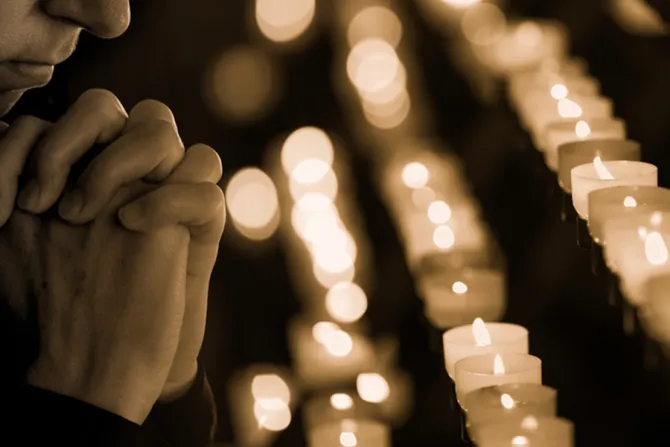Andrey Kuzmin/Shutterstock.
Did you know that you can get a plenary indulgence any day this November? It’s true. The Vatican has decided to grant Catholics who visit a cemetery to pray for the dead on any day in the month of November a plenary indulgence.
Usually, the Catholic Church only grants this plenary indulgence for the souls in Purgatory to those who pray in a cemetery on Nov. 1-8, which is the week of the Solemnity of All Souls’ Day.
Last year, due to the COVID-19 pandemic, the Apostolic Penitentiary issued a decree that extended the availability of some plenary indulgences because of concerns about avoiding large gatherings of people in churches or cemeteries. The Vatican has issued the same decree this year during the month of November.
The specific Nov. 2 plenary indulgence one can obtain for the souls in Purgatory by visiting a church or an oratory and reciting an Our Father and the Creed, can now also be done on any day in November.
What is a plenary indulgence?
A plenary indulgence is a grace granted by the Catholic Church through the merits of Jesus Christ, Mary, and all the saints to remove the temporal punishment due to sin. The indulgence cleanses a person of all temporal punishment due to sin. However, it must always be accompanied by a full detachment from sin.
Conditions to receive a plenary indulgence in all cases:
-
Detachment from all sin, even venial.
-
Sacramental confession, Holy Communion and prayer for the intentions of the pope. Sacramental confession and receiving the Eucharist can happen up to about 20 days before or after the act performed to receive a plenary indulgence.
It is appropriate that Communion and the prayer take place on the same day that the work is completed. One sacramental confession is sufficient for several plenary indulgences. However for each plenary indulgence one wishes to receive, a separate reception of the Eucharist and a separate prayer for the intentions of the Holy Father are required.
The Vatican decree issued due to the pandemic allows Catholics who are unable to leave their home, such as the sick or elderly, to still obtain a plenary indulgence by reciting prayers for the dead before an image of Jesus or the Blessed Mother. Examples of prayers homebound Catholics can pray include the rosary, the Chaplet of Divine Mercy, lauds or vespers of the Office for the Dead, or by performing a work of mercy by offering their pain to God.
Source: CNA

